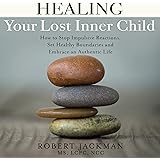Many individuals grappling with tobacco products, such as cigarettes or gutka, often find themselves trapped in a cycle of attempting to quit and subsequently relapsing. This persistent struggle can frequently lead to profound feelings of guilt and a sense of personal inadequacy, as repeated failures are often misattributed to a lack of willpower. Despite numerous sincere efforts, the powerful physiological and psychological grip of nicotine addiction regularly proves too formidable for sheer determination alone. As discussed insightfully in the video above, however, the core issue is not a deficit in personal resolve but rather the complex neurobiological mechanisms that govern nicotine dependency. Understanding these underlying scientific processes, which impact both the brain and body, is paramount for developing genuinely effective strategies to achieve lasting freedom.
This article aims to further elaborate on why willpower frequently falls short in the face of addiction and how nicotine systematically re-wires our brain chemistry and daily routines. It will delve deeper into the scientific explanations for cravings and withdrawal symptoms, providing clarity on what happens when the body is deprived of nicotine. Furthermore, the discussion will highlight the crucial distinction between a conscious decision to abstain and the automatic, conditioned responses characteristic of true addiction. By understanding these dynamics, individuals can move beyond self-blame and embrace a more informed, strategic approach to quit smoking successfully.
Understanding the Nicotine Trap: Beyond Willpower
Individuals who consistently use tobacco products often experience a frustrating pattern of attempting to quit only to relapse shortly thereafter. This cycle commonly fosters a belief that personal weakness or insufficient self-discipline is the root cause of their inability to stop. However, this perspective frequently overlooks the deep physiological and psychological alterations induced by nicotine, which effectively reconfigures the brain’s reward pathways. It is therefore crucial to recognize that the ongoing struggle extends far beyond a simple test of one’s intrinsic strength. The pervasive myth of willpower as the sole determinant for quitting must be challenged to foster a more empathetic understanding.
Conventional reliance on willpower, while embodying a commendable intent, typically proves inadequate because it primarily addresses the conscious desire to abstain without fully acknowledging the subconscious drives engineered by addiction. Nicotine dependency is undeniably a complex phenomenon, fundamentally distinct from merely a bad habit or a minor lapse in self-control. Essentially, while a strong will might offer temporary resistance, it typically cannot overcome the deeply ingrained biological and behavioral conditioning that defines a true addictive state. Consequently, a more comprehensive, scientifically informed approach is generally imperative for achieving sustained success in smoking cessation efforts. Such an approach necessitates understanding the brain’s role in perpetuating the cycle.
The Science Behind Nicotine Dependency: A Deep Dive
Upon consumption, nicotine swiftly travels to the brain, where it instigates a series of intricate biochemical reactions. One of the most significant effects involves the release of dopamine, a potent neurotransmitter associated with pleasure, motivation, and reward. When dopamine levels surge, the brain registers the experience as pleasurable, sending signals that reinforce the behavior. This neurological process is meticulously engineered to encourage the repetition of actions deemed vital for survival, inadvertently linking nicotine use to a sense of well-being and satisfaction. Therefore, the brain’s reward system begins to adapt to this artificial stimulation.
The brain’s reward system is thus gradually trained to associate specific situations, emotions, or activities with the presence of nicotine. For instance, relaxing after a meal, enjoying a cup of coffee, or coping with stress become intrinsically linked to the act of smoking or consuming gutka. This powerful associative learning is known as conditioning, effectively teaching the brain that nicotine is essential for experiencing comfort or alleviating discomfort. Over time, these learned associations become incredibly robust, transforming what might begin as a casual habit into a deeply ingrained dependency. Such deep conditioning is a primary reason for the challenges faced when attempting to quit smoking.
How Nicotine Hijacks the Reward Pathway
Nicotine operates by mimicking acetylcholine, a natural neurotransmitter, thereby activating specific nicotine receptors located within the brain. This activation, in turn, triggers the release of various other neurotransmitters, most notably dopamine, within the brain’s mesolimbic pathway—often referred to as the reward pathway. This pathway represents a critical component of the limbic system, a set of brain structures fundamentally involved in processing emotion, motivation, and memory. The artificial elevation of dopamine levels by nicotine provides an intense, albeit temporary, feeling of pleasure and a perceived reduction in anxiety, further reinforcing its use.
Repeated exposure to nicotine inevitably leads to significant adaptive changes in the brain, where the number of nicotine receptors can increase, or their sensitivity may be altered. Consequently, a larger quantity of nicotine is required to achieve the same desired effect, contributing directly to tolerance and escalating usage patterns. This neuroadaptation implies that the brain gradually begins to expect nicotine for its perceived normal functioning, leading to powerful and uncomfortable withdrawal symptoms when the substance is absent. Thus, the pleasure derived from nicotine slowly transitions towards merely alleviating the discomfort instigated by its absence, effectively trapping individuals in a continuous cycle of dependency.
Manifestations of Nicotine Withdrawal in Daily Life
When an individual endeavors to cease nicotine consumption, the abrupt cessation causes dopamine levels to plummet dramatically, thereby disrupting the brain’s artificially balanced chemistry. This sudden physiological shift initiates a cascade of withdrawal symptoms, which are both physically and psychologically taxing for the individual. Common manifestations include significantly increased irritability, pervasive heightened stress levels, severe sleep disturbances, and a persistent sense of anxiety. These symptoms are far more than mere inconveniences; they are potent, undeniable signals from a brain that has become profoundly reliant on nicotine for its perceived sense of equilibrium and normal functioning.
Furthermore, these internal, biochemical changes translate directly into readily observable struggles within everyday situations. For instance, waking up in the morning might trigger an intensely overwhelming craving for nicotine, or the simple act of drinking coffee could automatically conjure an immediate urge for a cigarette. Under conditions of heightened stress, the brain may reflexively demand nicotine as a coping mechanism, falsely promising immediate relief and clarity. These powerful environmental and emotional triggers consistently reinforce the dependency, making relapse often appear as the most viable or easiest solution for obtaining immediate comfort. Understanding these predictable patterns is absolutely critical for devising effective and sustainable strategies to successfully manage them.
The Self-Perpetuating Cycle of Nicotine Addiction
The experience of nicotine addiction is often characterized by a profoundly deceptive cycle where nicotine itself contributes significantly to feelings of stress and then provides only a fleeting, temporary sense of relief. For instance, the intake of nicotine almost immediately elevates heart rate and blood pressure, thereby creating a distinct physiological stress response within the body. As the nicotine levels in the bloodstream subsequently decline, these initial feelings of anxiety and irritation invariably intensify, compelling the user to seek another dose. This intricate process creates a deeply ingrained, false perception that nicotine is an effective stress reliever, despite its role in causing stress.
In reality, each subsequent cigarette or dose of gutka merely serves to alleviate the intense withdrawal-induced tension that the previous dose of nicotine originally created. This continuous, self-perpetuating loop solidifies the deeply held belief that nicotine is a necessary solution to their discomfort, rather than the actual original cause of that discomfort. Breaking free from this powerful and insidious cycle requires considerably more than just a momentary surge of willpower; it necessitates a comprehensive understanding of the complex conditioning and intricate physiological responses involved. Only then can genuine and lasting freedom from nicotine dependency be truly achieved and maintained.
Why Willpower Alone Isn’t Sufficient for Lasting Change
While willpower undeniably plays a significant role in the initial decision to quit smoking and during brief periods of abstinence, its effectiveness is often severely limited when confronted with the deeply ingrained neurobiological processes of addiction. The brain’s powerfully conditioned responses, coupled with the potent physiological discomfort of withdrawal symptoms, present formidable challenges that frequently overwhelm pure determination. Relying solely on willpower, therefore, places an immense and often unsustainable psychological burden on the individual, which regrettably leads to frequent frustration and repeated relapses, undermining self-efficacy.
For successful smoking cessation, a holistic and multi-faceted approach is typically required, one that effectively addresses both the pervasive psychological triggers and the profound physical dependency. This involves not only consciously resisting the urge but also actively engaging in the process of “unlearning” the established brain pathways and diligently developing new, healthier coping mechanisms. Understanding that the battle is against a complex, pervasive addiction, rather than simply a personal failing, profoundly empowers individuals to seek more effective, science-backed strategies. Ultimately, overcoming nicotine dependency is a profound journey that benefits immensely from comprehensive knowledge, strategic planning, and robust support systems.











